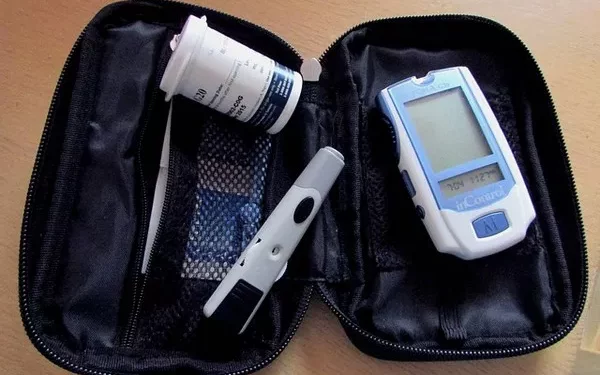Managing diabetes in older adults requires a thoughtful, personalized approach, especially as the population ages. Researchers at the 2025 Advanced Technologies and Treatments for Diabetes (ATTD) conference discussed innovative strategies to improve the care of older adults, emphasizing the role of advanced technologies and simpler treatment regimens to promote better health outcomes.
The Growing Challenge of Diabetes in Older Adults
With nearly 30% of individuals aged 65 and older living with diabetes, the need for tailored care has never been more critical. This age group faces an increased risk of complications such as hypoglycemia, kidney failure, and heart disease. As the older population grows, the number of individuals affected by these conditions is expected to rise significantly.
Joshua Neumiller, a certified diabetes care and education specialist at Washington State University, emphasized that the management of diabetes in older adults must be individualized. “Two 65-year-olds with diabetes can have vastly different care needs,” he explained, noting that factors like living situation, support systems, and personal goals should guide treatment decisions.
The Case for Simplified Treatment Plans
Many older adults are managing multiple chronic conditions, which often requires a complex regimen of medications. However, overcomplicating diabetes treatment can increase the risk of harmful side effects like hypoglycemia, particularly in high-risk patients. The American Diabetes Association (ADA) 2025 Standards of Care recommends “deintensifying” diabetes treatment by reducing medications that may lead to hypoglycemia. This shift aims to ease the burden of treatment while maintaining blood sugar control.
Dr. Anna Kahkoska, an Assistant Professor at UNC Chapel Hill, discussed “deprescribing,” the process of discontinuing inappropriate medications under healthcare supervision. This can be challenging, as there’s no standard definition for “overtreatment.” However, simplifying treatment plans—whether by lowering medication doses or adjusting blood sugar monitoring routines—can improve care.
Realigning Treatment Strategies for Better Outcomes
Dr. Medha Munshi, a geriatrician at the Joslin Diabetes Center, advocated for a four-step process to realign diabetes treatment. This approach focuses on identifying triggers that may necessitate a treatment review, engaging patients in shared decision-making, setting personalized goals, and simplifying care for better safety and efficacy.
The process begins by identifying events—such as hospitalizations or changes in living circumstances—that might require treatment adjustments. Providers then collaborate with patients and their caregivers to ensure any changes align with personal goals and preferences. The final step involves simplifying the regimen to ensure it’s as safe and effective as possible.
The Role of Technology in Diabetes Care
Advanced technologies, such as continuous glucose monitors (CGMs) and automated insulin delivery (AID) systems, are proving to be invaluable tools for older adults. Dr. Munshi’s research found that using CGMs in conjunction with personalized treatment strategies significantly reduced hypoglycemic episodes in older adults with type 1 diabetes.
CGMs help identify blood sugar patterns that traditional methods like fingersticks might miss, providing a more detailed picture of glucose fluctuations. Studies have also shown that AID systems can improve blood sugar control and decrease the risk of hypoglycemia in older patients.
While the use of these technologies has grown, there remains a gap in research regarding their effectiveness across diverse populations of older adults. Tomasz Klupa, a professor at Jagiellonian University, emphasized that age should not be a barrier to using these advanced tools. “Older patients may need more time to adapt, but this should not prevent them from benefiting from modern technologies,” he said.
Empowering Older Adults with Diabetes
The use of CGMs and AID systems is more than just about controlling blood sugar. These technologies enhance safety, increase confidence, and improve overall well-being by reducing the anxiety associated with hypoglycemia. Dr. Kahkoska highlighted that, for older adults, mastering these technologies is a dynamic, ongoing process that offers significant benefits beyond just glucose management.
As Dr. Munshi concluded, the ultimate goal of diabetes management in older adults is to ensure they age successfully, remaining independent and cognitively healthy. “We must prioritize the long-term well-being of our older patients, ensuring that treatment strategies support their independence and quality of life,” she said.
Conclusion
The management of diabetes in older adults requires more than just standard care—it demands a personalized, simplified approach that prioritizes safety and independence. Through realignment of treatment regimens and the use of advanced technologies, healthcare providers can help reduce the burden of diabetes while improving overall health and quality of life. The focus must remain on supporting older adults in aging successfully, with a care plan that is both effective and aligned with their personal preferences.
Related topics:
Sleep Health Linked to Increased Type 2 Diabetes Risk in Women with Gestational Diabetes
Clinical Trial Explores Osteoporosis Drug for Potential Type 1 Diabetes Treatment



























